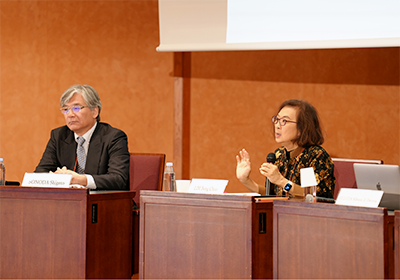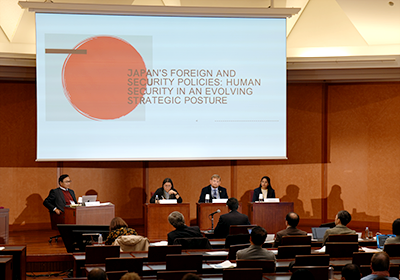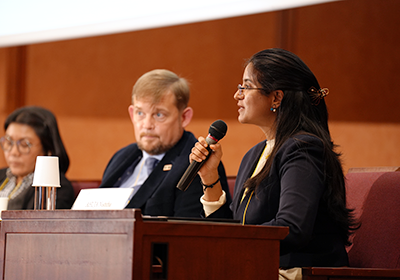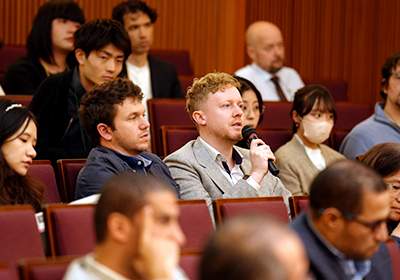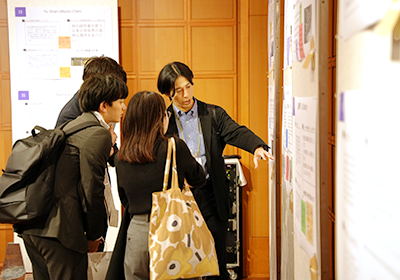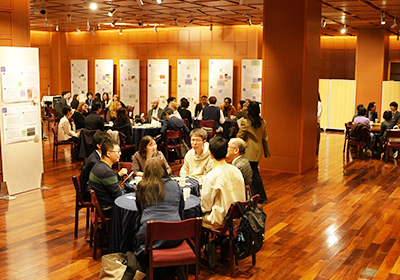2024 Japanese Studies Fellow Conference in Tokyo
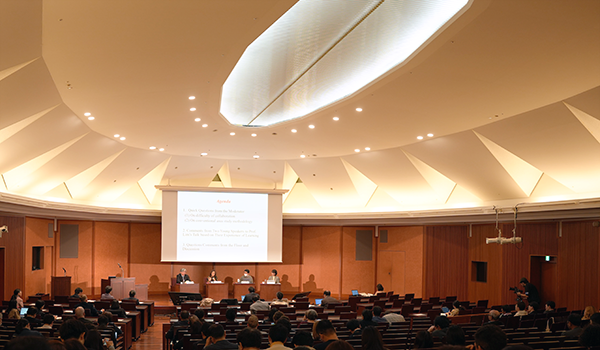
On Friday, November 8, 2024, “JF-GJS Initiative: Japan Foundation Fellow Conference 2024” was held at the Ito International Research Center of the University of Tokyo, co-organized by the Institute for Advanced Studies on Asia of the University of Tokyo (Tobunken).
This year’s Fellow Conference provided an opportunity to bring together nearly 140 participants in total, including JF Japanese Studies fellows staying in various parts of Japan for research activities, their advisors in Japan, faculty members of Tobunken, former JF fellows (Alumni), Ishibashi Foundation / the Japan Foundation fellows for Research on Japanese Art, the Japan Foundation Indo-Pacific Partnership (JFIPP) Fellows, researchers and graduate students from more than 10 universities in Japan and abroad including the Center for Integrated Japanese Studies, Tohoku University, and also JICA, JNTO and other private foundations.
Organized as a networking event of "Partnership to Co-create a Future with the Next Generation: WA Project 2.0” which started in 2024, the Fellow Conference opened with a morning session entitled “Fostering Research Networks to Co-Create a Future with the Next Generation”. Dr. LIM Beng Choo, the Head of the Department of Japanese Studies at the National University of Singapore, was invited to give a keynote speech “To Be and How to Be – Navigating Research Landscape in Japanese Studies Today”. In the following dialogue session, a roundtable discussion was held with young researchers from Southeast Asia, and other researchers and JF fellows joined the discussion from the floor to exchange opinions from various angles on issues that need to be addressed for the next generation of Japanese Studies researchers.
The afternoon session titled “Japanese Studies in the World Today: Learning from Others” featured three presentations by a JF-GJS fellow (jointly invited by JF and Tobunken) and two JF fellows. The comments made by three Tobunken professors with their respective expertise, along with further discussions with the floor, are expected to serve as an impetus for even more energetic research and exchange in the field of Japanese Studies.
Finally, the “Poster Networking Event: Meet JF Fellows” was held in the space surrounded by JF fellows’ posters describing their profiles, research contents, motivations, and their questions they wish to ask to the other JF fellows and researchers. All the participants joined this event and enjoyed lively discussions in groups about such topics as readiness and preparation for research, collection of research data/materials, and the significance and experiences of staying in Japan for conducting research.
Through all these the Fellow Conference provided an opportunity for JF fellows to get to know each other and to build networks with other researchers from Japan and abroad who attended the conference. Among the post-survey responses were: "The conference was very fruitful for me as an individual because I had the opportunity to interact with researchers from various fields”; “I learned about other research methods and perspectives, which broadened my research horizons.” It is hoped that these encounters will create new networks of Japanese studies researchers.
The recorded videos on the morning and afternoon sessions of the Conference are available on JF's YouTube channel at:
(Morning Session)
JF-GJS Initiative: Japan Foundation Fellow Conference 2024
Morning Session “Keynote Speech & Dialogue : Fostering Research Networks to Co-Create a Future with the Next Generation”
(Afternoon Session)
JF-GJS Initiative: Japan Foundation Fellow Conference 2024
Afternoon Session “Presentation & Discussion: Japanese Studies in the World Today: Learning from Others”
Related Website Pages :
Related Website Pages of Tobunken :
- 「JF-GJS Initiative: Japan Foundation Fellow Conference 2024」Event News (available in Japanese only)
- JF-GJS Initiative: Japan Foundation Fellow Conference 2024 | Event News | GAS: Global Asian Studies
Related Website Pages of Partnership to Co-create a Future with the Next Generation: WA Project 2.0:
- What We Do Top
- Arts and Cultural Exchange [Culture]
- Japanese-Language Education Overseas [Language]
- Japanese-Language Education Overseas [Language] Top
- Learn Japanese-language
- Teach Japanese-language
- Take Japanese-Language Test
- Know about Japanese-language education abroad
- The Japanese-Language Institute, Urawa
- The Japanese-Language Institute, Kansai
- Japanese-Language Programs for Foreign Specified Skilled Worker Candidates
- Japanese Language Education for Japanese Children Resident Overseas and for the Descendants of Migrants
- Archives
- Japanese Studies and Global Partnerships [Dialogue]
- JF digital collection
- Other Programs / Programs to Commemorate Exchange Year
- Awards and Prizes
- Publications

